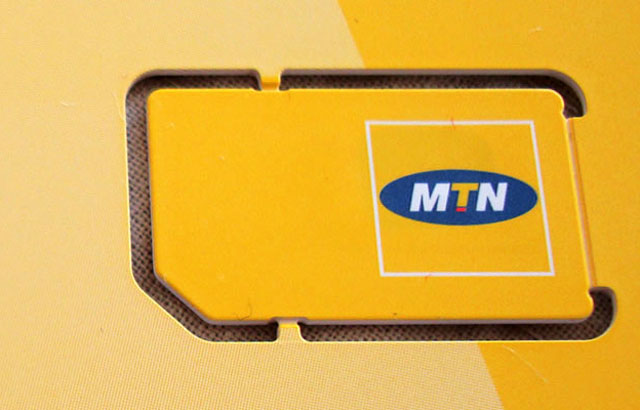
South African business investments in Nigeria are under the spotlight again after hotel and casino group, Sun International, announced it is pulling out of the country. The company cited poor economic conditions and regulatory challenges. It joins a growing list of high profile South African business failures in Africa’s second largest economy. The Conversation Africa business and economy editor Sibonelo Radebe asked Mills Soko to unravel the complexities of the Nigerian market.
What are the conditions of doing business in Nigeria?
Nigeria has the largest population in Africa and one of the biggest in the world. It boasts dynamic, entrepreneurial, ambitious and well educated people. The country was, until recently, one of the fastest growing economies in the world, prompting investment bank Goldman Sachs to include it in a group of countries called The Next Eleven. These are countries with a potential to be among the biggest economies in the 21st century.
Nigeria’s economy has traditionally been dominated by the oil sector. But it has become more diversified, with sectors such as telecommunications, real estate and financial services experiencing fast growth.
The country has become one of Africa’s major banking markets. Ten of its banks made the Top 1 000 World Banks ranking by the Financial Times. These factors, coupled with the promise of higher returns, make the country attractive to potential investors.
Although Nigeria has a history of economic mismanagement, successive governments have in recent years introduced reforms. These are aimed at improving the macroeconomic environment and business climate to attract foreign investment. The reforms have also laid the foundation for further diversification of the economy. They have created new investment opportunities in other sectors including manufacturing, mining, agriculture, engineering, retail, construction and hospitality.
But the business environment in Nigeria continues to be hobbled by many challenges. These include deficient infrastructure, erratic power supply, foreign exchange shortages, high inflation, currency volatility, corruption, high capital cost, red tape, high rentals, as well as excessive and unpredictable regulations.
In a nutshell, Nigeria embodies the economic promise of the African continent as well as its challenges and problems.
Are Nigeria’s challenges exceptional?
Nigeria shares many of the business risks and challenges that plague African countries. But what distinguishes the country from other African countries is its population size and its complex social structure straddling divergent social, political, economic, religious, ethnic and family dynamics.
There is a sense that the size of the country’s market and its enormous economic potential make it a testing ground for companies that want to expand into African markets. Running a business successfully in Nigeria is seen as a guarantee of success elsewhere on the continent.
Are South African companies doing something wrong?
There are over 100 South African companies operating in Nigeria and only a handful are commercial failures. The list of well-known failures includes Telkom, Woolworths and Tiger Brands. But they aren’t representative of the wider experiences of South African firms.
It is in the nature of doing business that some companies succeed and others fail. There are many reasons why some have not done as well in Nigeria. These include not conducting proper due diligence before entering the market, selecting the wrong acquisition target, inappropriate market strategies, choosing the wrong partner and mismanaging stakeholder relations.
These are mistakes that firms can avoid or mitigate. But there are also factors beyond a firm’s control that can have a negative impact on business, such as the fall in oil prices. Nigeria, an import-dependent country, is heavily reliant on oil for foreign exchange earnings. The recent fall in oil led to a sharp currency devaluation. This made it more expensive for the country to pay for imports.

Which South African businesses are getting it right in Nigeria? How are they doing it?
MTN, Standard Bank, Shoprite, Pepkor and MultiChoice are among the South African companies that have thrived in Nigeria. Although there is no one specific blueprint for business success in the country, or any other African market for that matter, there are several lessons that can serve as a guide to success.
These lessons are informed by the experiences of several companies that have done business in the country. They include the importance of carrying out detailed market research, undertaking thorough due diligence, executing the right market strategy, choosing the correct acquisition target and finding a suitable local partner.
The list of critical things to focus on to mitigate risk also includes building relations and managing stakeholder relations, learning from peers’ coping strategies, being flexible and open-minded, investing in hard and soft infrastructure such as mortar and skills, staying focused and taking the long-term view.
The case of MTN shows that even if a firm has cracked the Nigerian market, it must never become complacent. When it ventured into Nigeria in 2001 MTN had to overcome formidable technical, operational, political and legal challenges. It did so impressively. Given the challenges it faced it could have opted to quit the market. But MTN decided to stay the course because it was confident in the Nigerian market and was determined to succeed.
Yet last year the telecommunications giant took its eyes off the ball. MTN failed to obey an order from the Nigerian authorities to disconnect 5,1m unregistered subscribers. This resulted in the authorities imposing a fine of US$5,2bn, later reduced to US$1,7bn.
The lesson here is that companies must always respect the sovereignty of a host country. This includes complying with the laws and regulations governing business.![]()
- Mills Soko is associate professor, Graduate School of Business, University of Cape Town
- This article was originally published by The Conversation

